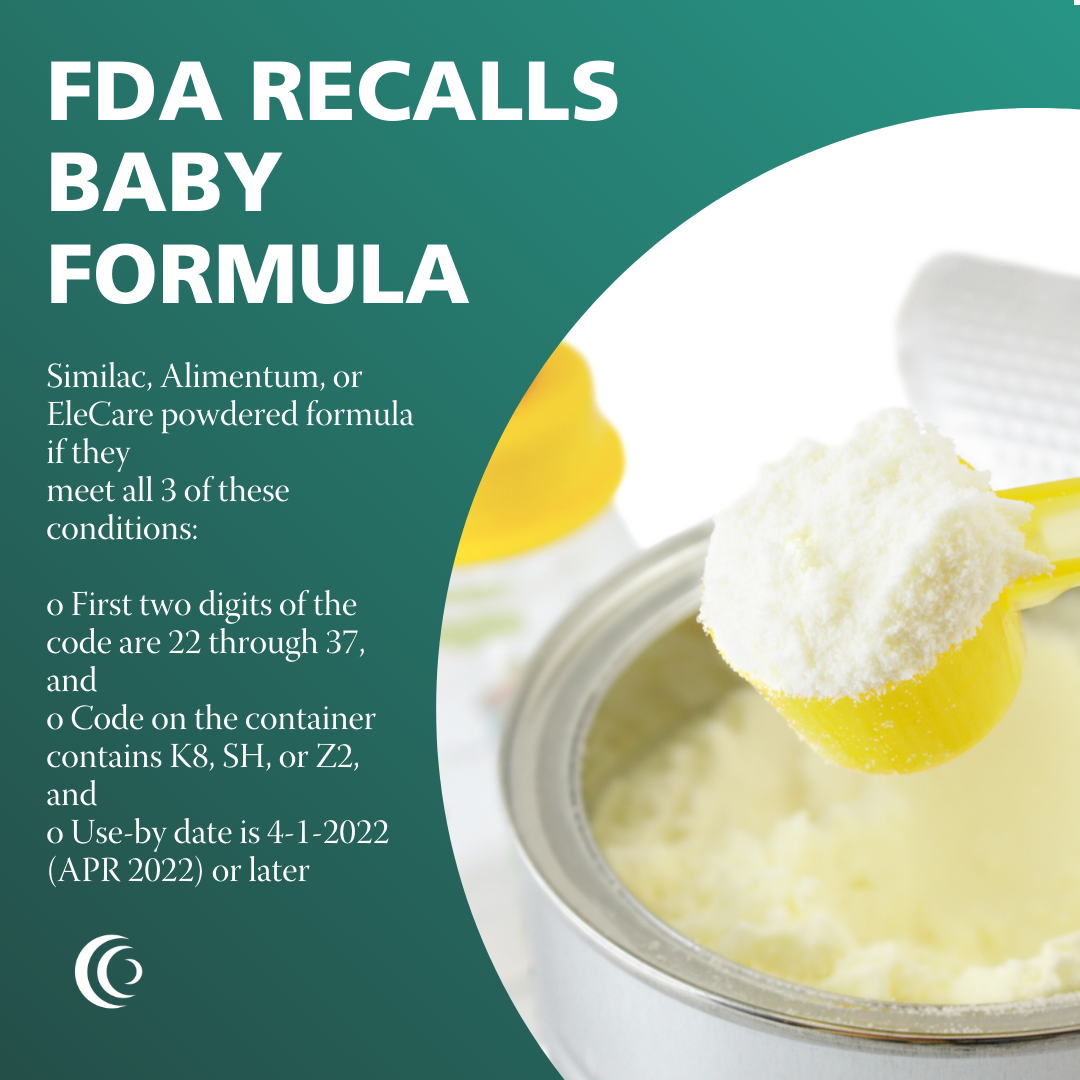FDA Recalls Baby Formula
- Posted On:

The Centers for Disease and Control Prevention (CDC) and the U.S. Food and Drug Administration (FDA) are investigating consumer complaints of Cronobacter sakazakii infections in infants in several states who were fed powdered infant formula. On February 17, Abbott recalled several brands of formula produced at its manufacturing facility in Sturgis, Michigan. Parents and caregivers of newborns should not feed their baby recalled powdered infant formula.
FDA is advising consumers not to use Similac, Alimentum, or EleCare powdered formula if they meet all 3 of these conditions:
- First two digits of the code are 22 through 37, and
- Code on the container contains K8, SH, or Z2, and
- Use-by date is 4-1-2022 (APR 2022) or later
Parents and caregivers of newborns should throw away any remaining recalled powdered formula or return it for a refund.
Cronobacter infection is not reportable in most states, meaning doctors are not required to report cases to their health department. Cronobacter illnesses are rare, but when infections happen, they can be deadly for infants. CDC typically receives reports of 2–4 infections in infants per year.
About Cronobacter
Cronobacter sakazakii is a germ found naturally in the environment and can live in very dry places. The germs can live in dry foods, such as powdered infant formula, powdered milk, herbal teas, and starches.
Cronobacter illnesses are rare, but infections can be deadly for infants and serious for older adults and for people who have health problems or take medicines that lower their bodies’ ability to fight germs and sickness (weakened immune system).
How Cronobacter can Spread
At a production factory, Cronobacter could get into formula powder if contaminated raw materials are used to make the formula, or if the formula powder touches a contaminated surface in the manufacturing environment.
Powdered infant formula could also become contaminated at home or elsewhere after the container is opened. For example, Cronobacter could get into the formula if formula lids or scoops are placed on contaminated surfaces and later touch the formula, or if the formula is mixed with contaminated water or in a contaminated bottle.
Symptoms
Infections in infants usually occur in the first days or weeks of life. Infants 2 months of age and younger are most likely to develop meningitis if they get sick from Cronobacter.
The first symptom of Cronobacter infection in infants is usually a fever, accompanied by poor feeding, crying, or very low energy. Cronobacter germs can cause a dangerous blood infection (sepsis) or make the linings surrounding the brain and spinal cord swell (meningitis). Some infants may also have seizures. Infants with these symptoms should be taken to a hospital.
More information
Abbott Voluntarily Recalls Powder Formulas Manufactured at One Plant | FDA
Spanish: La FDA advierte a los consumidores que no usen ciertas fórmulas infantiles en polvo
producidas de las instalaciones de Abbott Nutrition en Sturgis, Michigan | FDA
FDA Investigation of Cronobacter and Salmonella Complaints: Powdered Infant Formula
